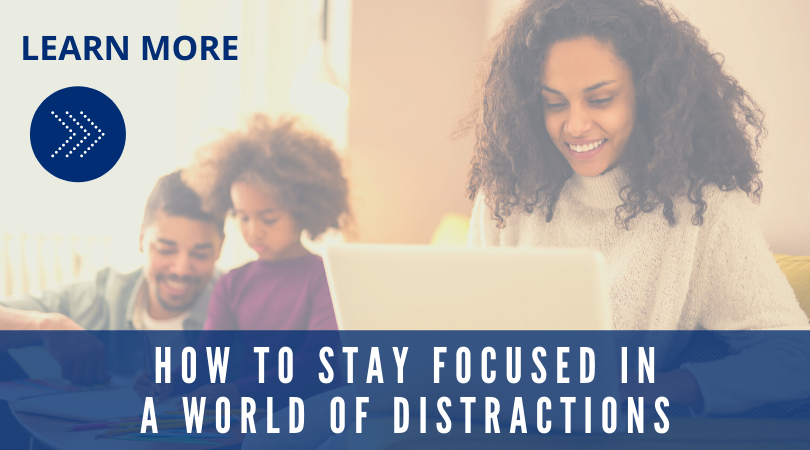Why your time off is good for your health, wellbeing and career
When is the last time you took a day off from work? Not a sick day, not even a day to run errands, but a real day off? When was your last vacation?
According to the Society for Human Resources Management, the average number of days taken off by American workers is 17.2. This is an increase from recent years, but still much lower than its peak in the early 1980s. Respondents to a 2016 Skift survey paint an even bleaker picture, reporting that roughly 55% of them took fewer than 5 days off that year.
While all that work might instinctively seem more productive, reality shows a different outcome. People who overwork themselves to the point of burnout suffer serious mental and physical drawbacks, as well as risking career advancement or an increase in income. NBC News estimates that workers who overexert themselves and skip vacations, known as work martyrs, are up to 27% less likely to be promoted and 84% less likely to get a raise than their co-workers.
At a time when so many agents are working from home, stepping away from the desk doesn’t necessarily mean you’re off the clock. Work/life balance has toppled for many as commutes are replaced with video conferences and kitchen tables stand in for cubicles. Living in this new reality only makes taking time off even more crucial to maintaining your physical and emotional well-being.
3 Reasons to take time off
1. Time off helps you to be more productive
Even taking a short time off can help you reenergize and destress. Distancing yourself from work enables you to remain focused on the important tasks when you are there. Taking the day or a week to relax might allow you to become more engaged and productive when you return, according to Psychology Today.
2. Your overall health can benefit from a vacation
It’s no secret that long-term stress can play a factor in health risks such as cardiovascular disease, hypertension, diabetes and other conditions. Stress can also exacerbate behavioral health issues such as depression and anxiety. This is why many experts, like those speaking to Huffington Post, encourage workers to “reframe rest as recovery.” Stepping away from the desk can help combat the negative effects of prolonged stress by giving your body and mind time to recover and restore. One scientific study found that vacations focused on rest and relaxation could even help boost your immune system.
3. Your brain needs time off too
Taking time off and clearing your schedule helps to declutter your mind. When your thoughts aren’t focused on task lists and what needs to be done next, they can drift, allowing you to daydream. This can help recharge your creativity and ability to innovate.
3 Tips for making the most of your time off
1. Plan ahead
Before you take time off, make a plan for leaving and returning to work. Block off your vacation ahead of time. Without a reminder on your calendar, you are less likely to keep those days free.
This could mean working ahead to avoid a backlog when you return or delegating tasks to a coworker. Tying up loose ends before clocking out can help you to avoid the temptation of working while on vacation.
2. Take more time off than you think you need
Allow for an extra day off before returning to work. This will give you a day to readjust to the idea of going back to emails, conference calls and to-do lists. You want to be able to ease back into work, not dive right back in.
3. Don’t pressure yourself to be productive
Don’t try to overly schedule your vacation with activities. To experience the most benefits from your vacation, it’s best to allow ample downtime. Remember, this is your time to relax and recover. If there are home projects that need done, do these right at the start, so you can spend the majority of your vacation not worrying about finishing before time’s up on your time off.
5 Things to do while on a staycation
1. Reconnect your relationships
Even if you are working from home with the family, it might not mean that you are actually spending more time together. Spend some quality time with your family and create some memories. If you haven’t been in touch with those outside your immediate household, take this opportunity to reconnect.
2. Be a tourist in your hometown
Are there historical sites or famous landmarks close to you? Chances are that even if you’ve lived your entire life in your city, you haven’t experienced all there is to offer. Take a walk or hit a bike trail to neighborhoods you haven’t visited yet, or chill out at your local park.
3. Pick up a new hobby – or an old one
Maybe you’ve always wanted to learn how to play guitar or you’ve been daydreaming about beekeeping. Now is the time to let yourself try something new.
Or, if you are like me, you already have hobbies that you love, but you just never have the time to practice them. Get back to what makes you happy, gives you a better sense of self and maybe finish that project you’ve been putting off.
4. Get off the grid
Computers, phones, TV, voice assistants – most of us spend the majority of our day in front of a screen or connected to the internet. Use your vacation to unplug. Switching off the news and social media can be a welcome reprieve from the current climate.
5. Plan your next vacation
Already, tourist destinations are beginning to re-open – and they are offering huge deals to incentivize travelers to their hotels and hotspots. Maybe your trip was cancelled this year, but it’s never too early to plan for your next vacation.
Now you’re ready for that vacation and I haven’t even told you the best part yet – you don’t have to pack, wait in long TSA lines or worry about parking! This year has been challenging for everyone. Cut yourself some slack and take some time off. You not only deserve it, you need it.
Mary Carder, Integrated Marketing Specialist
DISCLAIMER
The information contained in this blog post is intended for educational purposes only and is not intended to replace expert advice in connection with the topics presented. Glatfelter specifically disclaims any liability for any act or omission by any person or entity in connection with the preparation, use or implementation of plans, principles, concepts or information contained in this publication.
Glatfelter does not make any representation or warranty, expressed or implied, with respect to the results obtained by the use, adherence or implementation of the material contained in this publication. The implementation of the plans, principles, concepts or materials contained in this publication is not a guarantee that you will achieve a certain desired result. It is strongly recommended that you consult with a professional advisor, architect or other expert prior to the implementation of plans, principles, concepts or materials contained in this publication.
This blog post may contain the content of third parties and links to third party websites. Third party content and websites are owned and operated by an independent party over which Glatfelter has no control. Glatfelter makes no representation, warranty, or guarantee as to the accuracy, completeness, timeliness or reliability of any third party content. References to third party services, processes, products, or other information does not constitute or imply any endorsement, sponsorship or recommendation by Glatfelter, unless expressly stated otherwise.
Related posts
From natural disasters to crisis situations, community-focused organizations face unique and dangerous risks during their missions.
Learn to create a memorable client experience from the customer service experts at Trader Joe's.
Questions you can use to help you determine if an insurance Carrier, Program Manager or MGA might be the right fit for your book of business.







Submit a Comment